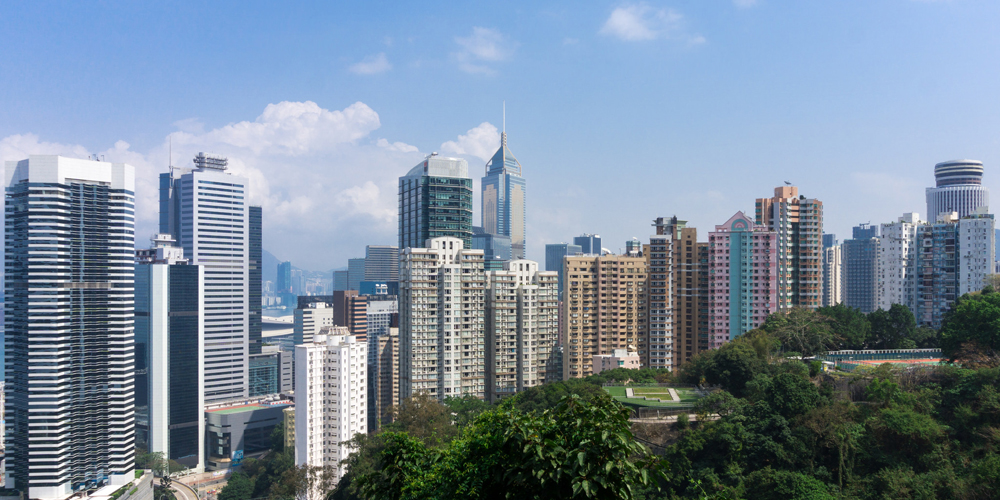A letter from Hong Kong
I first visited Hong Kong in 2006 and was greatly impressed by the glamour and buzz of the city but also by the warmth of the welcome I received from the students at Hong Kong City University who I spent...
I first visited Hong Kong in 2006 and was greatly impressed by the glamour and buzz of the city but also by the warmth of the welcome I received from the students at Hong Kong City University who I spent time with. There was a real sense of optimism and that while Hong Kong’s future was uncertain, with the then battle by heritage campaigners to save the Queen’s Pier symbolic of this, there was at least the possibility of a bright future. When I visited in February of this year, I spoke to some of those same students, now young professionals at various stages of their careers, and the general attitude was much more muted, and less optimistic.
At 9am on March 26, the election to decide the new chief executive began, from a shortlist of three candidates, with the outgoing chief executive, CY Leung, having chosen not to re-stand given his very low approval ratings. By 11am, the electoral college of 1,194 electors had cast their votes and Carrie Lam was elected chief executive, and the first woman to ever hold the post.
Hong Kong is a bustling, international city-region that is proud of its connections with both ‘East’ and ‘West’. My visit coincided with the Lunar New Year, an event which the official tourism website describes as being celebrated ‘in locations all over Hong Kong’ with lantern parades and which is sometimes referred to as ‘the Chinese Valentine’s Day’. When I asked one of my colleagues, Angela, about this she looked puzzled for a minute, then said “oh, I know what you mean, but for people who live in Hong Kong, that’s not really a thing.” She had previously worked in hotel management, before travelling around Europe and eventually marrying her Croatian partner. Her truffle-import business, and her internationalism, are a reflection of the global outlook displayed by many Hong Kong citizens.
“We don’t want to become just another Chinese city” was a sentiment I heard repeated across a number of conversations with different people. The population of Hong Kong has risen by over a million since handover in 1997, and that number disguises how many first generation immigrants there are, mainly from mainland China. “I worry that Hong Kong’s unique sense of character, and independent spirit, is being eroded by the significant numbers of mainland Chinese who are settling in our city – I do sometimes wonder if it is a deliberate ploy to make Hong Kong more Chinese before the Basic Law runs out” said one middle-manager at a ‘big 3’ Hong Kong-based bank.
This is perhaps the most polite complaint I heard about the influx of mainland Chinese immigrants and tourists. Other complaints included mainlanders’ habit of eating noisily on the subway, supposed ‘health tourism’ by Chinese mothers (to give their children Hong Kong citizenship) and rumours about urinating and defecating in the streets. The truthfulness of these claims is perhaps less important than the pervasiveness, with most Hong Kongers I speak to being at least aware of these stereotypes.
In 2014, the ‘Umbrella Revolution’ and ‘Occupy Central’ saw thousands of protesters bring the central business districts of both Hong Kong Island, and Kowloon, to a standstill, with some occupations and confrontations lasting days and weeks. Many of those involved in the protests have since turned to the formal political structures to address their grievances.
The politics of Hong Kong is quite complicated, but for the past 20 years has amounted to a larger ‘pro-Beijing’ camp, with control of the chief executive and a majority on the legislative council (LegCo), and the smaller ‘pan-Democrat’ camp, with enough seats on the LegCo to veto constitutional changes. There are 70 seats on the LegCo (with 27 required for a veto) and 458 district council seats across the 18 local authorities. The LegCo is elected in two parts: geographical constituencies, which pan-Democrats tend to have an advantage in, and functional constituencies based on some employment sectors, which tend to be heavily won by pro-Beijing candidates.
At the age of 25, Sunny Chan stood for election for the Civic party to Lai Ching constituency on Kowloon Tong district council in 2011, narrowly losing by 2,567 votes to 2,729 for his opponent, Yuen Poon. 4 years later, this constituency was won by the Civic party’s Bux Sheik, 3,060 to 2,682. I asked Sunny if he would ever want to stand again: “Maybe when I’m older. I stood before my career had really started, but now I am looking to progress in my workplace and I think politics might distract from that.”
The Civic party is currently the largest party in the pan-Democrat camp, with 5 members of the legislative council, 11 district councillors and at least 500 members, which given the sheer number of parties, makes it one of the largest!
The former leader of the Civic party, Alan Leong, wrote in his outgoing letter after 12 years in the LegCo: “It is regrettable that the Chinese Communist party, thus the Central People’s government, has not honoured the One Country Two Systems constitutional order as promised by and enshrined in the Basic Law. One only has to remind oneself of the black and white letters of Article 22 to tell how flagrantly the Basic Law has been breached. The article provides that:
“No department of the Central People’s government and no province, autonomous region, or municipality directly under the Central People’s government may interfere in the affairs which the Hong Kong Special Administrative Region administers on its own in accordance with this Law.”
Interference in supposedly internal Hong Kong affairs by Beijing is a common complaint in Hong Kong, given that Basic Law (which is protected under Treaty by the Sino-British Joint Declaration) is supposed to uphold the administrative independence of Hong Kong until 2047.
A strong example of Beijing interference is control over the way the chief executive is elected. Although it is stated in the Basic Law that: “…the ultimate aim is the selection of the chief executive by universal suffrage upon nomination by a broadly representative nominating committee in accordance with democratic procedures”, there are ongoing arguments over what a ‘broadly representative nominating committee’ looks like and how immediate and mandatory an ‘ultimate aim’ is.
Until universal suffrage is achieved, the election for chief executive is done by the notionally 1,200-strong election committee. This is constituted along similar lines to the functional constituencies for the LegCo, with many professions electing delegates to the election committee. While the pan-Democrats won more positions on this body than ever before in the December 2016 elections, making strong gains in the higher education, accountancy and architectural subsectors, securing at least half of the seats in the engineering and medical subsectors and making clean sweeps in legal, education, health services, IT and social welfare, this was not enough, amounting to just over a quarter of the available seats.
While huge sectors of the Hong Kong workforce such as transport, textiles, construction and yourism carry just 18 votes each, many of the sectors have much larger numbers of delegates who can almost always be relied upon to follow the Beijing line:
- Chinese People’s Political Consultative Conference – 55
- Employers’ Federation of HK – 16
- HK and Kowloon District Councils – 57
- New Territories District Councils – 60
- HK Chinese Enterprises Association – 16
- Chinese National People’s Congress – 36
- Legislative Council – 70
- Practitioners of Chinese Medicine – 30
- Taoist Association – 10
- Confucian Academy – 10
- Buddhist Association – 10
The switch in support from Beijing away from the presumptive nominee, John Tsang, to Carrie Lam took many by surprise, given his strong lead in the popular polls which was growing even until polling day. In addition, her background had largely been in the civil service, rather than political; she made her name as a tough operator in forcing through the demolition of the Queen’s Pier in 2007, and has ruffled many feathers since.
By the end of voting, Carrie Lam had received 777 votes of a possible 1,994, the highest number ever received by a chief executive: but the number was soon seized upon by her opponents, due to the similarity in the pronunciation of the word ‘seven’ in Cantonese to the vulgar slang for male genitalia.
In the immediate aftermath of Lam’s election, South China Morning Post journalist, Yonden Lhatoo, wrote:
“Maybe she’s been arrogant in the past and upset a bunch of administrative officers, the pillars of the civil service, but she’s clearly learning lessons in humility during her transformation from career bureaucrat to politician. Out of touch with the person on the street? Again, she’s learning, and we’re all teaching her the hard way, aren’t we, vulgar nicknames and all.”
In the meanwhile, researchers from the University of Hong Kong surveyed over 1,000 residents and found that trust in the government of Hong Kong has risen 12 points since December, which is attributed largely to the change in leadership. People seem to be willing to give her a chance, but not with any great enthusiasm or optimism.
In the words of my middle-management banker friend: “Hong Kong has 30 years left until we are no longer protected under the Basic Law. I love Hong Kong, but I’m not sure I want to be here when that happens.”
Image: Barnzy

